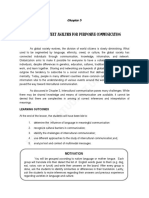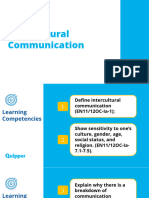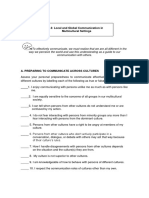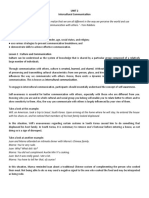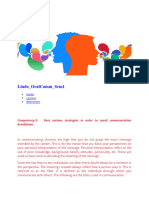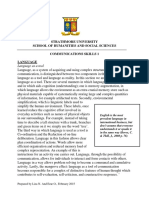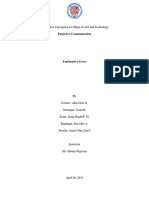0% found this document useful (0 votes)
34 views5 pagesCommunication Assignment 2
The document discusses the importance of effective communication in personal and professional contexts, emphasizing how cultural, gender, nationality, and social class differences influence communication styles and perceptions. It highlights the challenges posed by language barriers and non-verbal communication, suggesting strategies for overcoming these barriers to promote better intercultural communication. Additionally, it addresses issues of inequality in communication based on gender and social class, underscoring the need for respect and understanding in diverse interactions.
Uploaded by
bennahCopyright
© © All Rights Reserved
We take content rights seriously. If you suspect this is your content, claim it here.
Available Formats
Download as PDF, TXT or read online on Scribd
0% found this document useful (0 votes)
34 views5 pagesCommunication Assignment 2
The document discusses the importance of effective communication in personal and professional contexts, emphasizing how cultural, gender, nationality, and social class differences influence communication styles and perceptions. It highlights the challenges posed by language barriers and non-verbal communication, suggesting strategies for overcoming these barriers to promote better intercultural communication. Additionally, it addresses issues of inequality in communication based on gender and social class, underscoring the need for respect and understanding in diverse interactions.
Uploaded by
bennahCopyright
© © All Rights Reserved
We take content rights seriously. If you suspect this is your content, claim it here.
Available Formats
Download as PDF, TXT or read online on Scribd
/ 5







